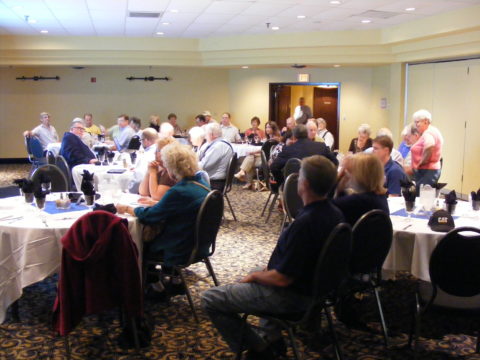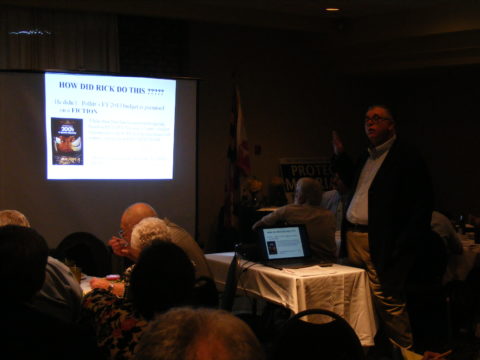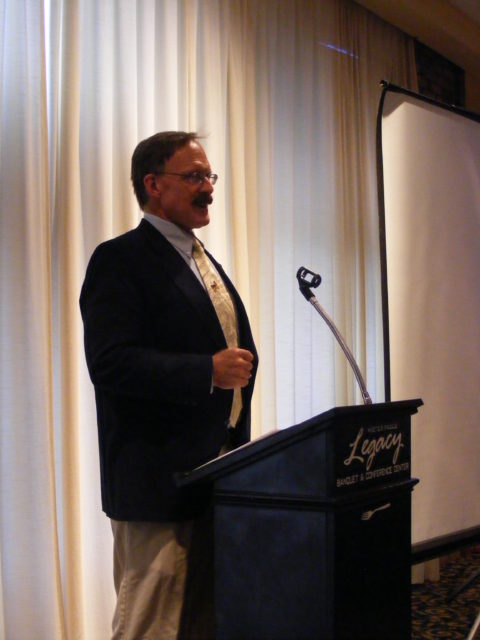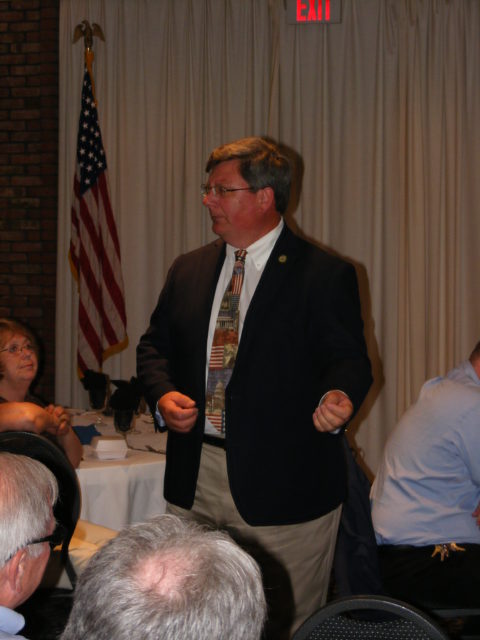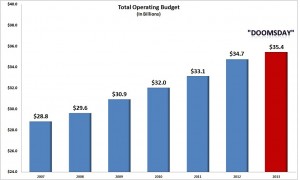Editor’s note, November 2019: This is another of my posts reclaimed from the defunct Examiner.com website. It’s been somewhat adapted to include several slideshow photos.
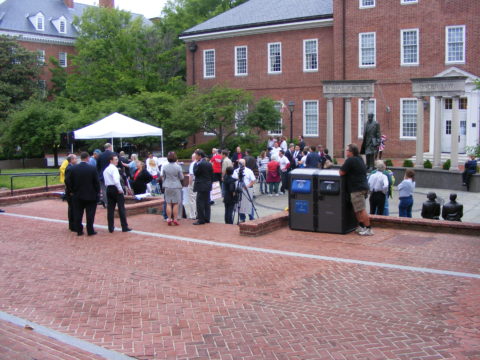
Despite the ominous skies and threat of rain, about 150 TEA Party patriots gathered in Lawyers Mall in Annapolis yesterday evening to express their displeasure with the Maryland General Assembly special session going on nearby.
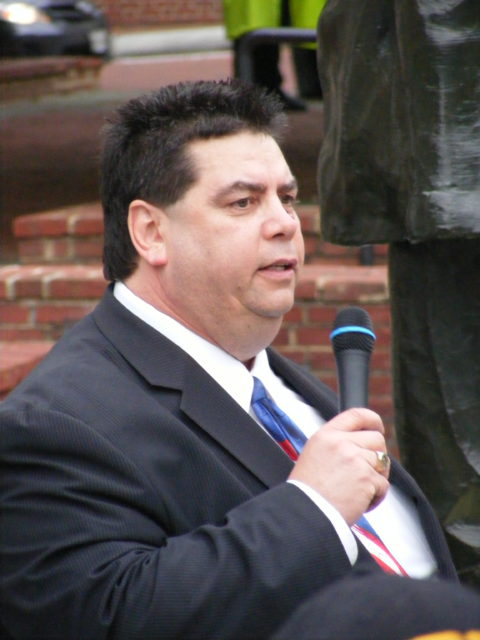
In the shadow of Government House, the Annapolis address where Governor Martin O’Malley resides, protest organizer Delegate Michael Smigiel led the group in shouting “No more taxes!” and presented nearly a dozen speakers who said their piece about the hastily-called legislative session Democrats felt was necessary to increase state revenue.
Many speakers pointed out the budget adopted during the regular General Assembly session was both in balance and about $700 million larger than last year. In his opening statement Smigiel characterized the state as “mov(ing) forward into a tax bayonet” and challenged attendees to be “one Maryland united against tax increases.” He also termed the budget cuts Democrats bemoaned as “entitlement math,” as overall spending increased.
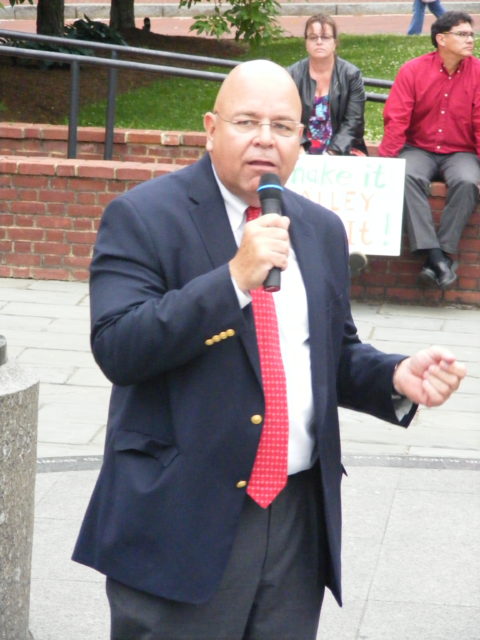
Senate Minority Leader E.J. Pipkin echoed Smigiel’s remarks, calling Martin O’Malley “the $2 billion governor,” for that was how much he had increased fees and taxes on an annualized basis since taking office in 2007. Pipkin also revealed that yesterday Republicans introduced what he called “the 2 percent solution.” Those assembled were told that a small 2 percent spending cut would negate the need for new revenue or the necessity of shifting teacher pension liability to the counties, as they would be under the Democrats’ plan.
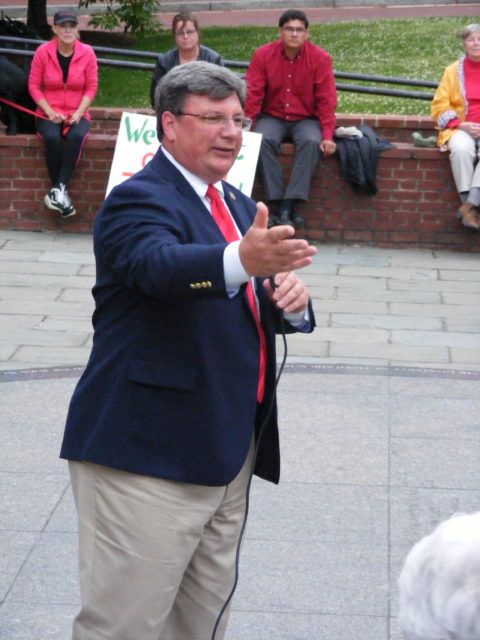
Several other Republican members of the General Assembly made their points during the protest, which lasted slightly over an hour. Most forceful among them was Delegate Mike McDermott, who bellowed at the governor, “the next time you bring a budget in here, and we strike it, you strike the colors of the state of Maryland and you run up the Jolly Roger because this is nothing but a pirate ship!”
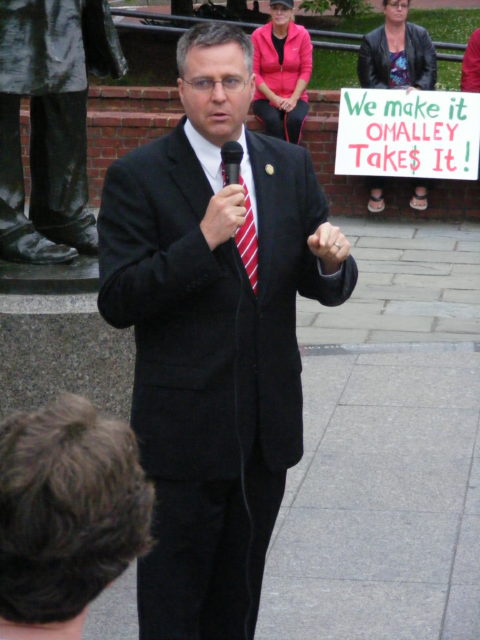
Delegate Neil Parrott was more subdued, but spoke about seeing businesses go to nearby West Virginia or Pennsylvania, bypassing his county. “We’ve got to stop this tax and spend attitude,” Parrott added, while also saying that we can take back Maryland via the ballot box and put a check and balance on some of the more egregious things the General Assembly does by using the referendum process.
Other members of the General Assembly who made remarks were Senator Nancy Jacobs, who wondered if Martin O’Malley was living in reality, and Delegates Cathy Vitale and Gail Bates.
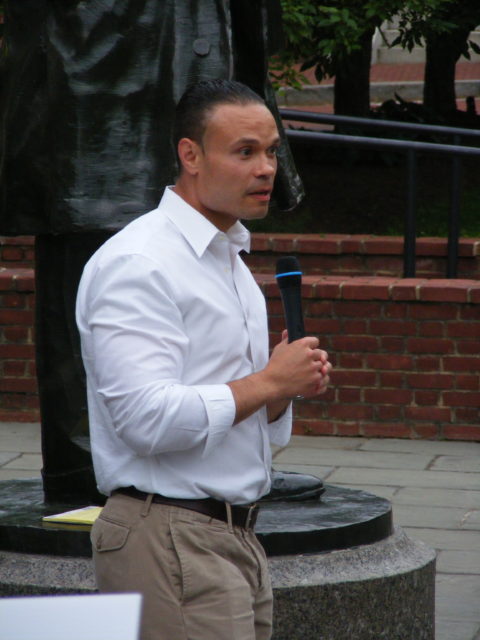
But speaking parts weren’t just reserved for members of the General Assembly. U.S. Senate candidate Dan Bongino made the case that it wasn’t just about taxes. “I’m tired of hearing about how Republicans are the anti-tax crowd,” he said. Instead, it was about prioritizing spending toward things we need as a society and away from frivolous items like a cowboy poetry contest in Nevada or a study of shrimp running on treadmills. “How dare you ask us for more?” Bongino asked, exhorting us to “cede no more ground.”
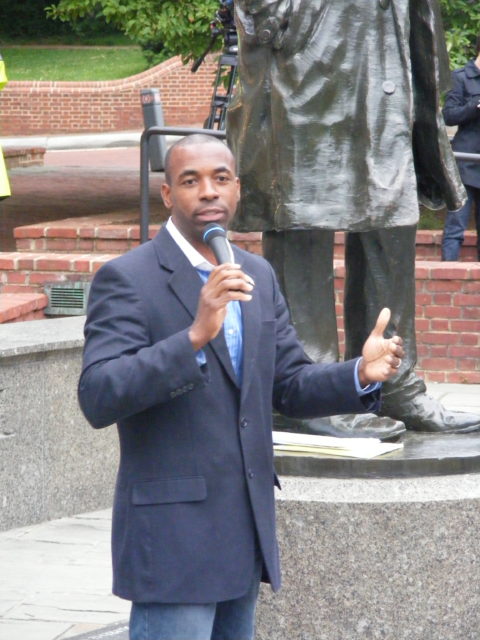
And while AFP Maryland head Charles Lollar believed “this fight…is about our liberty,” Harford County Executive David Craig – an “unofficial official” 2014 GOP gubernatorial candidate – reminded those within hearing distance that, while keeping taxes low, “I make (Harford County) live within its means.”
“I could live with the budget that was proposed,” added Craig.
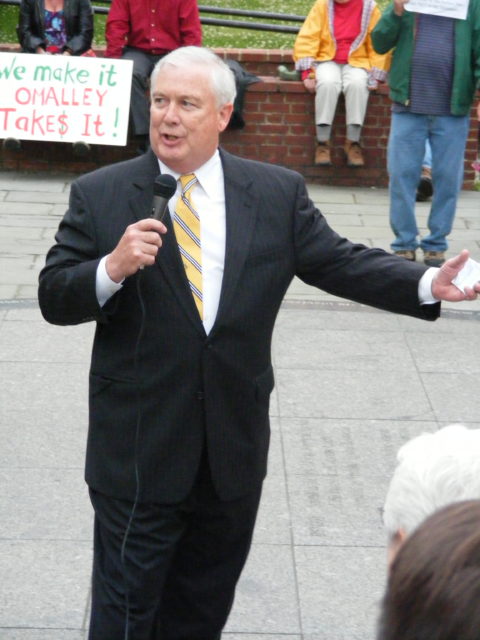
Attendees also heard briefly from Fourth District Congressional candidate Faith Loudon.
And while turnout was on the light side overall, a number of people came from outlying areas to attend with the Eastern Shore quite well-represented.
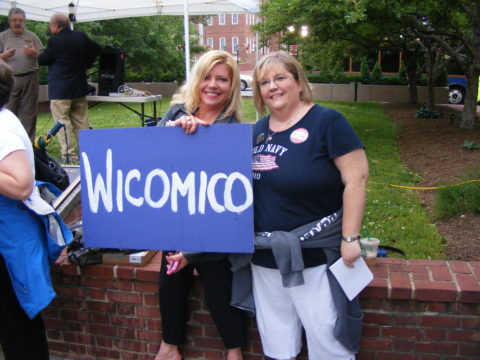
There were also a number of media outlets in place to develop the story of the protest, amplifying the voice of those who attended and giving conservatives an opportunity to get their message out.
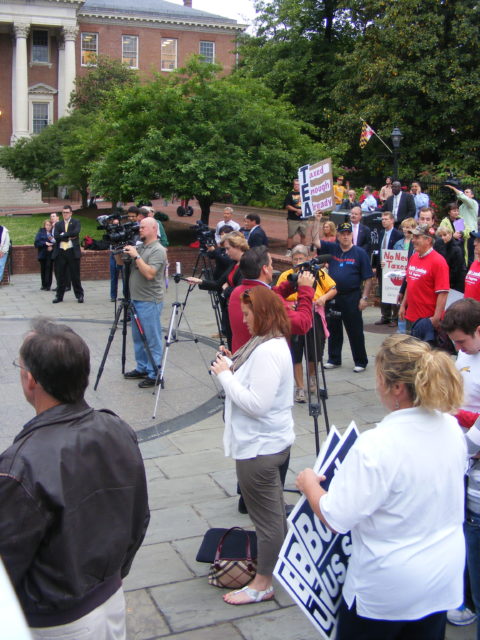
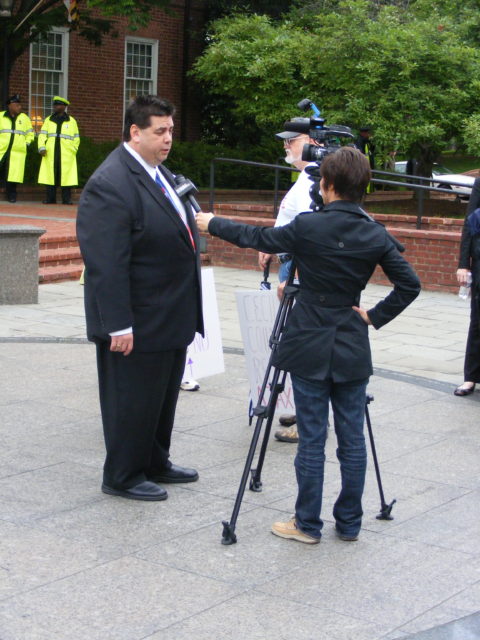
In particular, one young lady stole the show. Ten-year-old Emily Gray arrived at the protest with her mother, toting a handwritten sign which read “Governor O’Malley, when I graduate I have to move away. I won’t be able to pay my share of this debt.”

Another couple had bright handwritten signs pleading with the government to not take her last nickel because she “needs it to eat” while her friend stated “I’m poor enough – stop putting me in the hole more!”
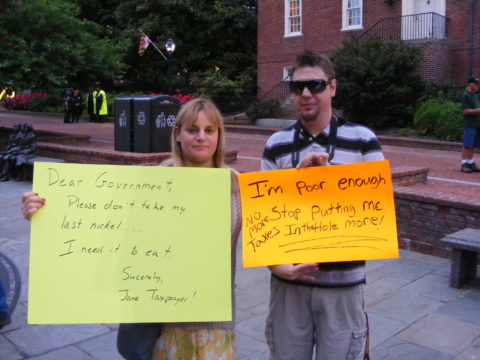
The Rally Against the Doomsday Session culminated a full day of political expression in and around the state capitol. It began with a ‘picket line’ outside manned by about 15 who stood in the rain Monday morning to solicit reaction to their cause. Inside, Republicans held a news conference condemning the proposed tax hikes and gained an unlikely ally in Democratic Comptroller Peter Franchot, another eyeing the open governor’s seat in 2014. Later at noon, a second press conference was held by the Maryland chapter of Americans for Prosperity.
On the other side, a counter-protest favoring the tax increases was slated for Lawyers Mall late yesterday afternoon, but the rain threat forced the protest into a nearby union hall. A few stragglers from that event, obvious in their green AFSCME shirts, strolled by to check out the Rally Against the Doomsday Session but no incidents occurred.
Unfortunately, the immediate result of the protests is likely to be negligible. Majority Democrats have the votes to ram through any revenue enhancements they desire, with the only question being just how severely they will impact wage-earners in the state.
But politics isn’t always just about the here and now. Certainly those who oppose the laundry list of tax increases which have been proposed time and again by revenue-hungry Democrats in Annapolis are making a mental note to remind voters in two years just who voted for what.
I think I will also do a post of notable quotables from the event just for monoblogue so look for that in the next day or two.


